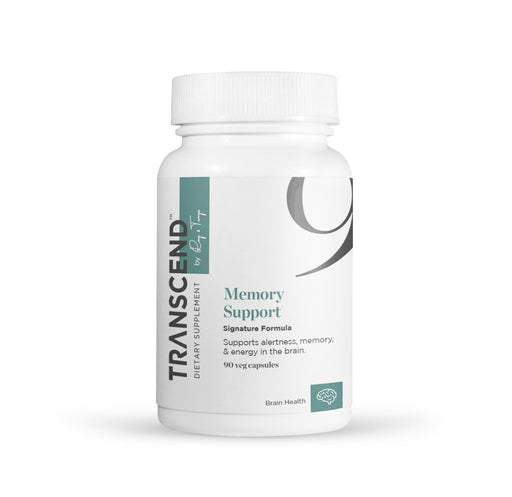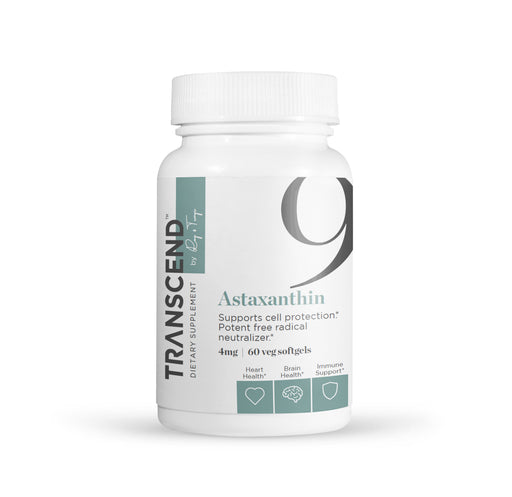
Anti-Aging Complex (ALA/ALC/Carnosine/GSE)
A Kurzweil + Grossman Formula Antioxidant and anti-aging protection Increase energy Fight aging Decrease wrinkles Cellular integrity Anti-Aging...
View full details
It wasn’t long ago that medicine was basically a hit or miss affair. Scientists discovered drugs with benefits but also many side effects. At that time, in the 1990s, we didn’t have the means to design medical interventions on computers. Today, that has all changed since we have decoded the human genome and can apply artificial intelligence (AI) to simulate biology. Genes are software programs. It’s not a metaphor. They are sequences of data. One of the most profound near-term objectives for AI is to vastly accelerate progress in creating new medications for diseases.
In the past year, we have seen many examples of this. Cancer treatments are being designed on the molecular level which means they are becoming tailored and targeted. These breakthroughs are being driven by exponentially advancing technologies, which Ray Kurzweil has been tracking and writing about for the past forty years. According to Kurzweil, after 80 years of constant exponential growth, computation has finally reached a tipping point, enabling AI to do incredible things like process and predict vast amounts of genetic data to pinpoint medical solutions.
In 2018, AlphaFold, an AI model created by Alphabet’s DeepMind, achieved the challenge of the century by accurately predicting the 3D structure of a single protein solely from its amino acid sequence. Then, in July 2022, AlphaFold2 shattered all expectations and predicted the structures of nearly all known proteins. This marked a profound step forward in medicine by unlocking information that scientists need to design drugs to reprogram proteins away from disease. This was not possible five years ago. Today, scientists can get to the root cause of diseases and create custom treatments that target problematic cells while leaving healthy cells alone. This is in stark contrast to non-targeted treatments like chemotherapy and radiation that damage normal cells while attacking cancer cells.
Building on AlphaFold2, Demis Hassabis, CEO of DeepMind, has launched Isomorphic Labs, a new company under the Alphabet umbrella that aims to reimagine the entire drug discovery process using AI. According to Hassabis, we are at the beginning of a new era of digital biology. In the past year, we have seen a proliferation of breakthroughs in targeted treatments for cancer. Here are seven advancements that have made recent headlines.
(Source + credit: Ray Kurzweil, Sarah Black, Kurzweilai.net)
--------------------------------------------------------------------------------------------
Dostarlimab (brand name, Jemperli) is an immunotherapy drug that was recently tested in a small clinical trial of 14 colorectal patients by Memorial Sloan Kettering Cancer Center. After six months of treatment every patient in the study who received the drug had their cancer go into remission. The cancer has not returned in any of the patients for a range of six to 25 months since the trial ended. The NIH is calling it a hopeful “miracle drug” and it is now in the trial pipeline for many other cancers.
Story title: Every patient in this experimental drug trial for colorectal cancer saw their cancer disappear
Drug: DOSTARLIMAB (Jemperli)
Publication: CBS News
Date: June 2022
LINK | www.cbsnews.com/news/rectal-cancer-drug-trial-immunotherapy-dostarlimab-study
--------------------------------------------------------------------------------------------
Vorasidenib is a new, targeted therapy drug specifically developed to treat glioma brain cancer, the most common malignant primary brain tumor in adults. In a recent study of 331 people co-led by UCLA, it delayed the worsening of the disease by seventeen months, allowing the subjects to hold off on chemotherapy and radiation. The current standard treatment, a combination of radiation and chemotherapy, can cause neurological deficits that make it hard for patients to learn, remember new things, concentrate, or make everyday decisions. Unlike chemotherapy, targeted therapies like Vorasidenib only attack cancer cells while minimizing damage to normal cells.
Story title: Breakthrough in Glioma Treatment: New Drug Delays Progression of Deadly Brain Cancer
Drug: VORASIDENIB
Publication: SciTech Daily
Date: June 2023
--------------------------------------------------------------------------------------------
In an early clinical trial, SurVaxM,a breakthrough, novel vaccine, nearly doubled the survival time of patients with glioblastoma brain cancer from fourteen months to twenty-six months. The study, conducted at Roswell Park Comprehensive Cancer Center, included 63 patients. SurVaxM works by training the immune system to target and attack cancer cells, so if they return, the body can pick them off, preventing a new tumor from growing. What makes this approach unique is the vaccine creates antibodies inside of the body that are believed to be able to break through the blood-brain barrier that other drugs cannot. MimiVax, the drug maker, is now enrolling patients in a larger trial and expects its earliest results from Phase 2b trial in mid-2024 followed by a larger Phase 3 trial. Although it was tested specifically on brain cancer, MimiVax is also looking to use the drug on multiple myeloma and neuroendocrine tumors.
Story title: Experimental cancer vaccine delays the return of aggressive brain tumor
Drug: SURVAXM
Publication: NBC News
Date: June 2023
--------------------------------------------------------------------------------------------
Researchers at Massachusetts General Cancer Center recently found two existing cancer medications, Vemurafenib and Cobimetinib, can be used to interfere with faulty genes in a rare type of brain tumor called PCP or Papillary Cranio-Pharyngiomas to halt their progression and drastically reduce their size by 91%. The drugs targeted two proteins, BRAF and MEK, which are both involved in cell growth. This treatment has the best response rate to-date of any medical therapy for brain tumors. Dr. Priscilla Brastianos made this discovery by studying PCP at the molecular level, genetically sequencing the tumors to find the specific mutation in the BRAF gene. Fortuitously, it matched the same mutation found in melanoma which has FDA approved treatments (Vemurafenib and Cobimetinib). Brastianos was then able to test the effectiveness of these medications on PCP. The results are encouraging for the future of precision medicine in brain cancer.
Story title: Doctors use precision medicine to show drug can shrink rare brain tumor by 90%
Drug: Vemurafenib and Cobimetinib
Publication: Stat — by Boston Globe Media
Date: July 2023
LINK | www.statnews.com/2023/07/13/melanoma-drugs-brain-cancer-papillary-craniopharyngioma
--------------------------------------------------------------------------------------------
Scientists at the National Institutes of Health and Massachusetts General Hospital conducted a series of experiments in cells and mice to search for molecules that selectively kill human liver cancer cells. What they found was YC-1, a molecule that is activated by an enzyme in liver cancer cells called SULT1A1, making it toxic to tumor cells. They see YC-1 and similar molecules as prototypes for developing a toolkit of SULT1A1-activated molecules that could fight different types of cancer as well as other diseases. Ultimately, their discovery has the potential to develop a whole new class of anticancer drugs.
Story title: Scientists reveal a potential new approach to treating liver cancer
Publication: National Institutes of Health (NIH)
Date: March 2023
LINK | www.nih.gov/news-events/news-releases/scientists-reveal-potential-new-approach-treating-liver-cancer
--------------------------------------------------------------------------------------------
Doctors are calling AOH1996 the holy grail cancer breakthrough that could kill all solid tumors. Developed by City of Hope Cancer Center over the last two years, it has been effective in pre-clinical research in treating breast, prostate, brain, ovarian, cervical, skin and lung cancers. AOH 1996 targets a protein that helps tumors grow and multiply while leaving healthy cells unharmed, thereby targeting, and killing the tumor alone. The drug works on all types of solid tumors. The next step is clinical trial in humans.
Story title: Scientists praise holy grail cancer breakthrough as new drug annihilates tumors.
Drug: Malkas - AOH1996
Publication: The New Zealand Herald
Date: August 1, 2023
--------------------------------------------------------------------------------------------
BPGbio (BERG), a clinical-stage biopharma company, has developed an artificial intelligence platform that simulates biology to battle some of the deadliest cancers including brain and pancreatic cancer. BPM31510, one of the first cancer drugs to be developed this way, reprograms the metabolism of cancer, leading to cancer cell death. In preclinical studies in orthotopic models of brain cancer, pre-treatment with BPM31510 followed by radiation was associated with significant long-term survival compared to radiation alone. The company is also using the AI platform to look for drug targets and therapies for other conditions, including diabetes and Parkinson’s disease.
Story title: AI-powered pharma company BPGbio discovers optimistic cancer treatment using AI
Drug: BPM 31510
Publication: Business Wire
Date: June 6, 2023

A Kurzweil + Grossman Formula Antioxidant and anti-aging protection Increase energy Fight aging Decrease wrinkles Cellular integrity Anti-Aging...
View full details
Updated 2022 to retain the 420mg per serving, please use 2 softgels! Improve skin elasticity Cell membrane flexibility Support memory function ...
View full details
Improve short- and long-term memory Reduce stress levels Sharpen your cognitive performance Promote circulation and energy in brain Ray & ...
View full details
Healthy Eyes, Brain and Nervous System Potent carotenoid antioxidant Promotes healthy anti-inflammatory response Formulated with Zanthin® for eye...
View full details
Leave a comment